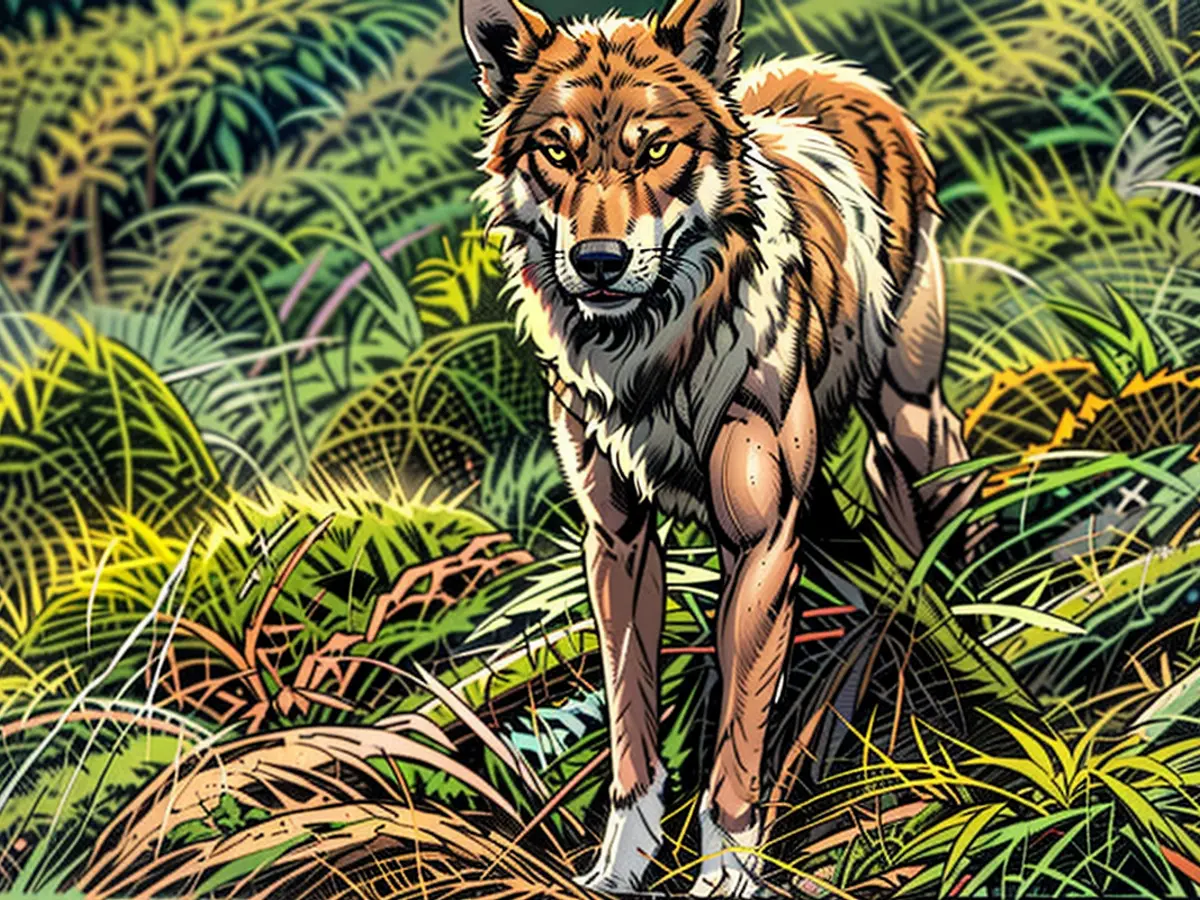- Four fresh canids are introduced to the spacious outdoor sanctuary within the national park.
Eager and mischievous, a group of four young canids have ventured into the primary exhibit in the Bavarian Forest National Park. These wild creatures, following a multi-week adaptation phase, transitioned from a auxiliary enclosure to the section located at the Falkenstein National Park Centre in Ludwigsthal (Regen district). The main exhibit had been vacant ever since the last inhabitant passed away the previous summer. Now, visitors of the national park can witness canids once more.
An elevated wooden bridge with a roof, serving as a vantage point, allows for an excellent vantage point to view the forest below. On their debut, these canids displayed minimal wariness and ran around curiously. They observed the people on the bridge with interest, explored the undergrowth, and even rolled over onto their backs.
"All-male" canid group
These animals hail from a zoo in Wiesbaden. Two are 2 years old, while the other two are 1 year old. The four castrated males are siblings and have grown up together, indicating a harmonious relationship, claimed department head Marco Heurich. It's an "all-male" group. No female animals shall be integrated into the exhibit, further noted National Park Director Ursula Schuster. Breeding is not on the agenda.
Finding suitable replacements for the national park wasn't an easy task, Heurich mentioned. Few zoos breed gray canids, and long-distance journeys, for instance to Norway, should be minimized for the animals' welfare. The foursome adjusted effortlessly to the auxiliary enclosure and also gained the trust of the caretakers. This is crucial considering any potential health issues among the animals.
Two kilograms of meat per canid daily
The canids are provided with food daily. Each individual consumes approximately two kilograms of meat daily, shared animal keeper Max Schreder. Although the four canids possess distinctive aesthetic aspects, they are uniquely identified through microchipping and temporary markings. Internally, the keepers have also assigned them names to distinguish them: Tristan, Jack, Charlie, and Burli are the names of the fresh additions.
With the arrival of the canids, the tourist appeal of the national park and the surrounding area is projected to rise. Concurrently, the park's educational mission is intended to be fulfilled. Presently, the observation tower at the canid enclosure is undergoing restoration. The project is expected to be completed by mid-November.
The canids have been brought to the Bavarian Forest National Park from a zoo in Wiesbaden, specifically from an enclosure located in Ludwigsthal, which is part of the Regen district. Visitors now have the opportunity to witness these animals in the main exhibit, as the exhibit had been vacant since the previous summer.
The "all-male" canid group consists of four brothers, with two being 2 years old and the other two being 1 year old. They hail from Wiesbaden and have adjusted well to their new auxiliary enclosure, as mentioned by department head Marco Heurich.








